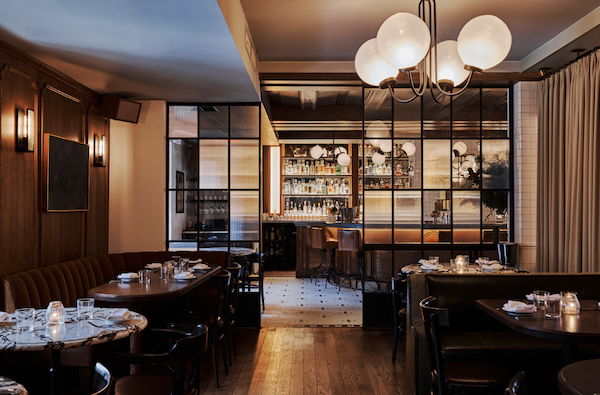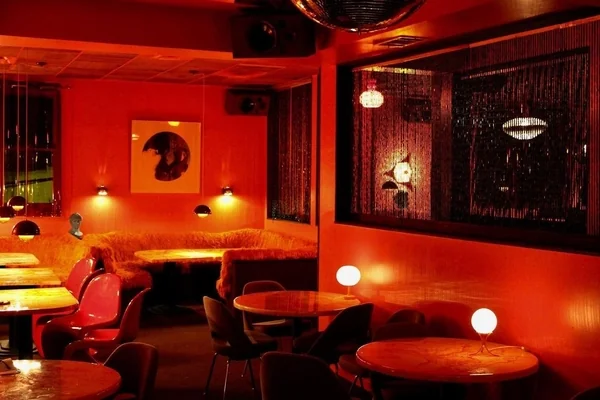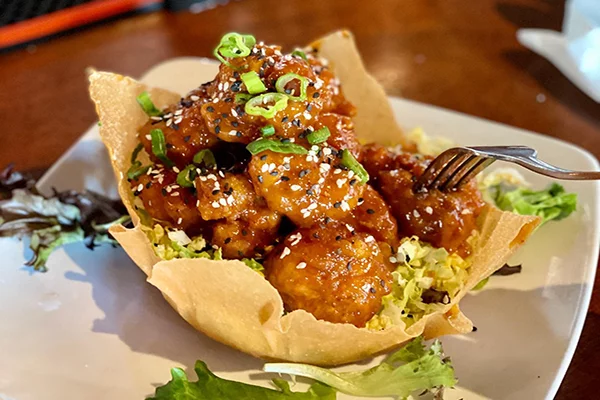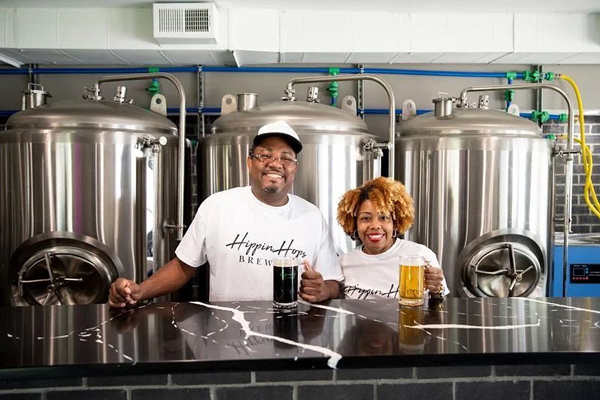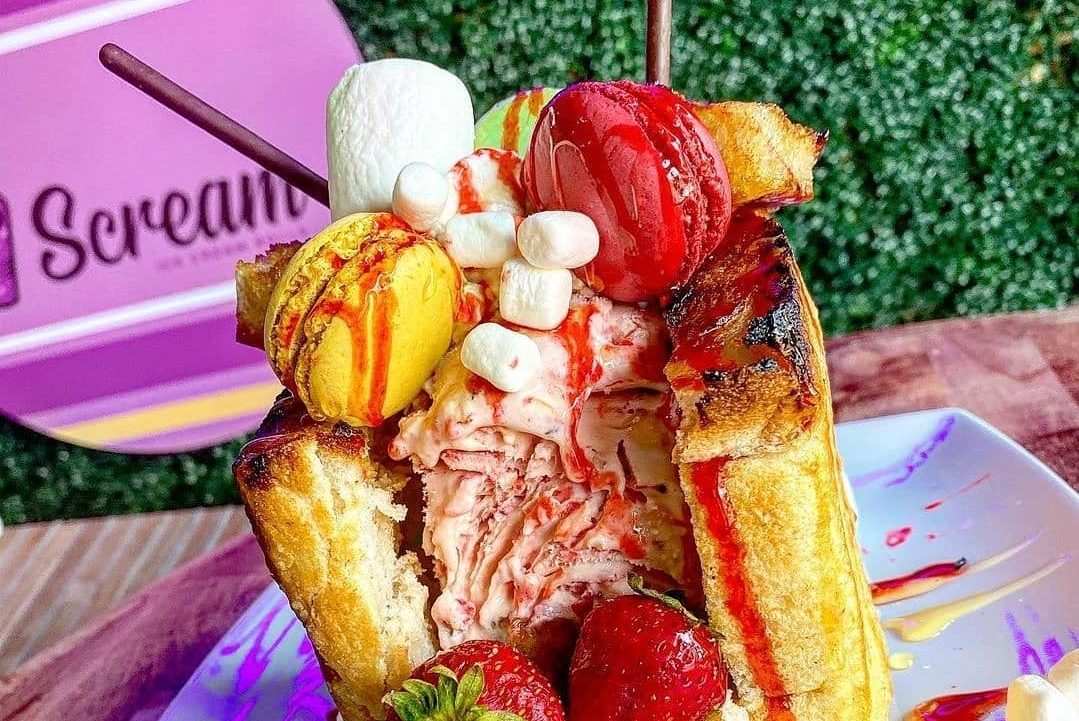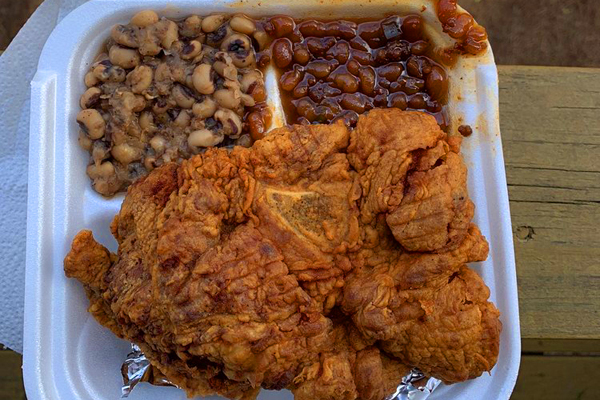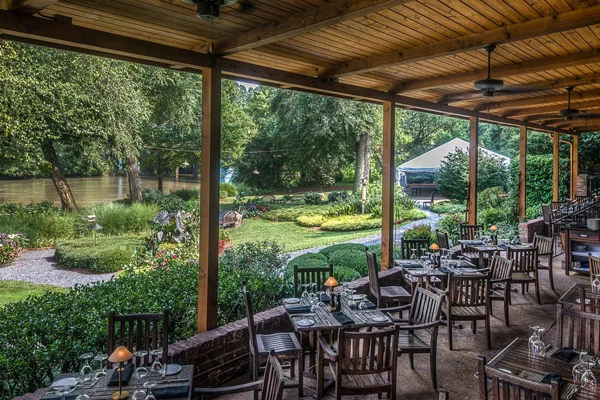Chef Profile: Tyler Williams
A couple of weeks ago the big culinary-go-round news was that Tyler Williams, Executive Chef at Abattoir, had been tapped to fill the chef’s position vacated by Kevin Gillespie at Woodfire Grill.
The Michigan native sat down with Atlanta Eats to talk about Woodfire Grill, why some menus are just confused (and confusing), how Atlanta compares to other cities, and what Modern Southern means to him.
Woodfire Grill
We begin by talking about how Bernard Moussa and Nicolas Quinones, the owners of Woodfire Grill, courted him. “They called me and I met them at a coffee shop and chatted with them about what I do,” says Tyler in his Michigander accent, which sounds like a hybrid of Frances McDormand in Fargo, and Alan Tudyk’s Steve the Pirate from Dodgeball. “I wasn’t looking for a new job, I just figured I should explore my options.”
He says Bernard and Nick “seemed to have a great sense of ownership and passion for the business, which I respected, and is the most important thing to feel from the owners. As a chef, you want them involved.” When they continued to stay in touch, Williams knew that something was happening. He grins disarmingly as he talks about how he couldn’t have seemed less interested in the gig. “I told them I didn’t think I had time to do a tasting, and I wasn’t going to be throwing it together on my day off, because I wasn’t really looking for a job, but if they wanted come in and eat my food, that was fine, I’d be there.”
And that’s what happened. Bernard Moussa had dinner at Abattoir, liked the food, and made Williams an offer.
“They offered me the job when I was on my honeymoon.” Tyler recently tied the knot with his girlfriend, Julie, the new GM at 4th and Swift, and when he mentions her it’s clear that he’s very proud of his soul mate. “When I got back I talked to Annie Q (Anne Quatrano, co-owner of Abattoir) and we decided that since I was coming off my honeymoon and the kitchen was in a good spot at Abattoir, and they needed me at Woodfire…the best course of action was for me to go straight there. So I just called them up and said ‘Hey, I can start tomorrow.'”
While Tyler hasn’t really settled into the kitchen at Woodfire yet, he has no illusions about how different Abattoir and Woodfire Grill are: “[Woodfire has] two separate expo stations where you’ve got to time the food out. There’s tasting menus for 5 and 7 courses, there’s the regular menu, there’s pescatarian tasting, there’s vegetarian tasting, and you’re timing this up with two separate expo stations, so it’s very complicated.”
Williams is impossibly cheerful and personable. He’s also excited about getting comfortable in the kitchen at Woodfire, but he admits that the dual expediting stations will be a personal challenge for him. “Obviously I’m so used to seeing every plate that comes out, that’s hard for me because I’m bit of a control freak.”
As to whether the new chef plans to stamp his personality on the restaurant immediately, he says, “Woodfire’s menu structure is complicated and, up to this point I haven’t really even delved into the food much. I’ve been tweaking things, but the systems are so different to what I’m used to that for the first few days I want to take in how they’ve been doing it.”
“I’m gonna work within that structure for a while and see how far I can push the quality of the food within that structure while keeping able to execute on a busy Saturday night,” said Williams.
One lesson learned from a career spent working with some of the nation’s most celebrated chefs and restauranteurs, is that Williams has a certain amount of sympathy for staff who go through a change of executive chef. “There’s a transition time, and I think everyone has a grace period where things are gonna happen, things are gonna go wrong during that time period. But after that I don’t think anything should go wrong. Ever.” It’s a certain amount of sympathy, not an endless amount.
When I asked how that transition is going, he said, “The guys at Woodfire have been really great, I think they’re excited about it, too.”
So for a while the food at Woodfire is going to feel like a hybrid of Kevin Gillespie’s dishes, transitioning into something wholly owned by Tyler Williams. And on that subject, Williams says, “I’m so damn impatient, because until that moment when everything on the menu is an extension of me, I don’t feel comfortable, and I’ll have this sense of stress. That’s the point where instead of worrying about getting all the quality of the food where you want, that’s when you can really become playful, when everybody’s dialed-in in the kitchen; and it’ll free me up to just go around and make it awesome, and that’s what I want to do.”
Locally Sourced
If you don’t know already, Williams is firmly in the farm to fork camp. He acknowledges that in the last few years restaurants have generally moved in that direction, and diners should be confident that any chef-driven restaurant is, to some extent, sourcing their ingredients locally.
When I ask about whether restaurants go too far in listing the farms that provide the ingredients used in dishes, he tells me, “I think it’s redundant at this point. I’m already using these farms, and I think it should be assumed that I’m using them.”
Tyler has a straight-forward attitude to menus. “People like flavors,” he says, “so if the ingredients are listed that’s enough. People get way too wordy with it, so the farm thing…oh my God, how many menus do you look at and see things like ‘Eden Farms Berkshire Pork Loin’ — is it really necessary?”
Reminding us that great food is just as much about the skill of the chef as the quality of the ingredients, he says, “I think some people think that somehow [a particular ingredient is] gonna make their food better — like that pork can’t be dry or bad, it’s Berkshire pork.”
Instead of by-the-dish shout-outs, Williams prefers to recognize the farms he uses by putting “a list on the back of our menu that says ‘We use these farms.'”
Williams chooses to focus on the diner, give them enough information to choose a dish without overwhelming them, then equip the servers with more details if the diner has a question. “I give my servers knowledge of where the ingredients come from so if there’s a follow up at the table they have tons of information on any of the individual ingredients and where they come from, but as far as putting that on the menu…I like simplicity.”
Atlanta vs The World
Williams took a long road to get to Atlanta. He grew up just outside Lansing, Mich., got his degree in Cultural Geography from Arizona State University before heading to Portland, Ore., and the Western Culinary Institute (which is now Le Cordon Bleu College of Culinary Arts). He left Portland for a baptism of fire at Thomas Keller’s Bouchon restaurant in The Venetian Resort in Las Vegas, before returning to Portland, and found his way to Atlanta via Chicago.
So how does Atlanta’s restaurant scene compare?
Williams jumps right into answering. It’s either something he’s been asked a lot, or has thought about for a while, or some combination of both. “I think [Atlanta’s] becoming a lot like Portland because of the farm to table movement. Everyone’s becoming involved and [chefs] here have great relationships with the farmers, and I truly feel that that’s the essence of good cooking. You have to grow things nearby and work with the ingredients that you can grow in your region.”
This is a where Chicago’s different from Atlanta: “Chicago has middle men who keep the farmers away from the chefs,” Tyler says. “Bruce Sherman has made a lot of strides in getting those farmers in [to restaurants] and setting up farmers’ markets, but there’s so few farmers involved, and so many restaurants, it’s not easy to get deliveries from the farmers directly to the restaurants.”
What that looks like in restaurants is that “[In Chicago] they’ll use a lot more of the specialty flours and high end stuff. Here we’d ask why we’d spend money on those micro greens when I can use these beautiful turnip greens that are already on the top of my beautiful turnips.”
The result of this difference, Williams says, is that Chicago’s restaurants employ a lot more manipulation of ingredients. On a continuum of rustic to very elegant and manipulated, Portland and Chicago are at opposite ends of the spectrum, and Atlanta is somewhere in between, but closer to Portland than Chicago, at least culinarily.
“I think this city’s more refined than Portland in some senses, more elegant, but still very locally and rustically sourced — it’s a bridge between elegant and rustic like Chicago is all gels and fancy and manipulated food. I think we have a really good balance – I think Ryan [Smith] has found a really good blend of those things, I think there’s several chefs around town that have.”
Southern Food
To bring this full-circle, I bring up something Kevin Gillespie wrote in his vision and mission for Gunshow.
“Modern Southern glorifies a South I don’t know…one with plantations and cocktails on the lawn.”
It’s an interesting idea, and I ask how much “Modern Southern” has been influenced by Yankee outsiders creating dishes that speak to them of the South.
“I don’t want to fall into that,” Williams begins, “I think that would be a mistake. Obviously in every Atlanta kitchen there are employees from the South — both my sous chef at Abattoir and Woodfire are Southern boys — so you have that to fall back on.”
He recalls an early experience at Abattoir. “Collard greens. I tried to make collard greens. When I came down here the first time I made the collard greens at Abattoir and the sous was like, ‘What the hell are these, they’re so sweet.’ And I was like, ‘Graham Elliot taught me how to make these collard greens, that guy’s got two Michelin stars, what the hell are you talking about?'” Like a lot of chefs, he’s an animated and engaging storyteller. He pauses before the big reveal. “So I didn’t make the collard greens because my sous already had the palate for it, and over time I developed that, as well.”
Instead of re-inventing the South from his imagination, Williams approaches being a chef in the South with a genuine reverence for the cuisine, while aiming to expand the palates of the locals. His method is scientifically artful, if that makes any sense. “I’m not really creating Southern cuisine but I’m trying to pay homage to the space and place I live in. I look at it geographically, and I break it down like this: you have the ingredients that are grown here, there’s me and my personality and techniques, and then I have the palates of the local diners. I take those three things and I shuffle them around to create a dish.”
The Future
“What I put on a plate in front of a guest is a true reflection of me,” Williams says, “and it should be unique and individual. You should only be able to come and get food like mine at Woodfire Grill.”
“I think the most gratifying part of this business is putting things you can’t express verbally about yourself on a plate, and then getting that gratification that people understand where you’re coming from. They sort of understand who you are more from the dish that you create.”
So if you haven’t been to Woodfire Grill since Tyler took over, you’re in for a treat, at least when he feels in total control of everything. Until then, and just between you and me and the Internet, he jokingly half-expects that “people are gonna come into Woodfire and they’ll be there because of Kevin Gillespie, and some of them won’t even ask about it they’ll just say, ‘Oh Kevin, your food’s delicious’ and I’ll be like…you’re welcome.”
To understand more about who Tyler Williams is, follow @tylerjamie79 on Twitter for his brain, Instagram for his eyes, and TeamHidi for a cause close to his heart, and his wife’s Twitter to see glimpses of his sensitive side.
Picture Credit: Tyler’s Instagram.


